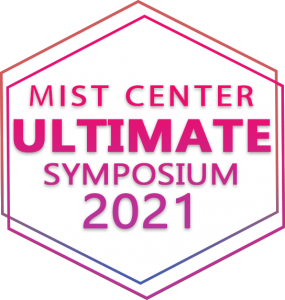
Neuromorphic Computing at the Edge
September 22
The MIST Center ULTIMATE Symposium brings together academic, government, and industrial thought leaders on emerging hardware technologies that will pave the way for future electronics, networked systems, and distributed sensing platforms.
About this Session
Proliferation of IoT edge devices, an uncertain future of Moore’s Law, and an exponentially growing energy demand for computing dominated by Machine Learning in an increasingly warming earth has created an exciting opportunity to re-imagine microelectronics technology. The front-end contender for such a re-imagining is Neuromorphic Computing, where devices, circuits, and architectures are built to mimic neural systems. This effort requires deep collaborative efforts between semiconductor industry, software industry, academia, and government to build a new technological base for the next century.
This ULTIMATE symposium will provide a platform where technological and economic gaps are explored and synergistic efforts take roots, and to engage new engineers and scientists preparing to enter a brave new world.
Invited Speakers
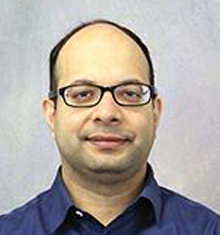
Sumeet Gupta, Ph.D.
Associate Professor
Purdue University
Dr. Gupta is currently an Elmore Associate Professor of Electrical and Computer Engineering at Purdue University. His research interests include low power variation aware VLSI circuit design, neuromorphic computing, in-memory computing, nano-electronics and spintronics, device-circuit co-design and nano-scale device modeling and simulations. [Read more]
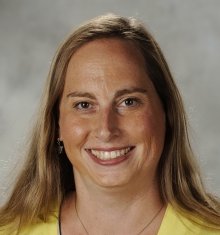
Jennifer O. Hasler, Ph.D.
Professor
Georgia Institute of Technology
Dr. Jennifer Hasler received her B.S.E. and M.S. degrees in electrical engineering from Arizona State University in August 1991. She received her Ph.D. in computation and neural systems from California Institute of Technology in February 1997, and she received her Master of Divinity degree from the Candler School of Theology at Emory University in 2020. [Read more]
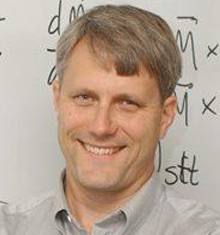
Mark D. Stiles, Ph.D.
Fellow and Project Leader
National Institute of Standards and Technology
Dr. Stiles is a Project Leader and NIST Fellow in the Alternative Computing Group in the Nanoscale Device Characterization Division of the Physical Measurement Laboratory (PML). He received a M.S./B.S. in Physics from Yale University, and M.S. and Ph.D. degrees in Physics from Cornell University. Following postdoctoral research at AT&T Bell Laboratories, he joined the research staff at NIST. [Read more]
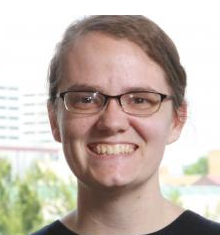
Catherine Schuman, Ph.D.
Research Scientist
Oak Ridge National Laboratory
Dr. Schuman is a research scientist at Oak Ridge National Laboratory (ORNL). She received her Ph.D. in Computer Science from the University of Tennessee (UT) in 2015, where she completed her dissertation on the use of evolutionary algorithms to train spiking neural networks for neuromorphic systems. She is continuing her study of algorithms for neuromorphic computing at ORNL.[Read more]
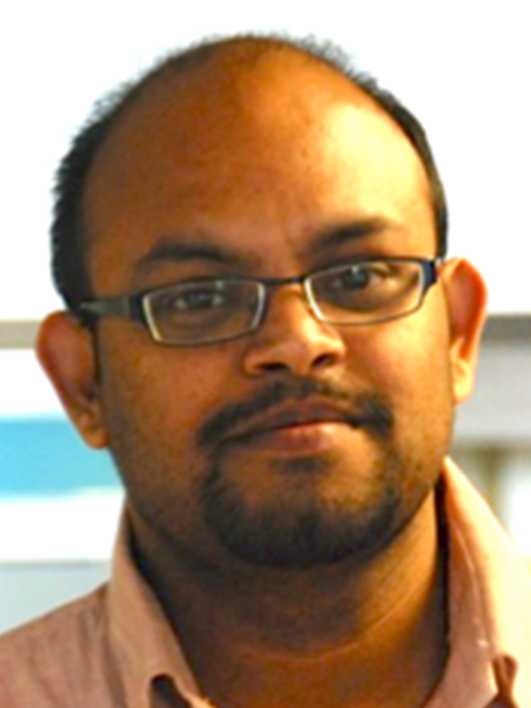
Samiran Ganguly, Ph.D.
Research Scientist
University of Virginia
Dr. Ganguly is a Research Scientist at University of Virginia. He received his Ph.D. from Purdue University under the guidance of Prof. Supriyo Datta in 2016. He co-founded and co-developed the Modular Approach to Spintronics, the largest open source collection of circuit modules for modeling complex structures and devices using emerging materials technology and phenomena. [Read more]
Agenda
| Start | Topic |
|---|---|
| 12:30 p.m. | Introduction |
| 12:45 p.m. | Dr. Mark Stiles, NIST |
| 1:15 p.m. | Prof. Jennifer Hasler, Georgia Tech |
| 1:45 p.m. | Dr. Catherine Schuman, ORNL |
| 2:15 p.m. | Q&A |
| 2:30 p.m. | Prof. Sumeet Gupta, Purdue University |
| 3 p.m. | Dr. Samiran Ganguly, University of Virginia |
| 3:30 p.m. | Q&A |
| 3:45 p.m. | Conclusion |
Session Chairs
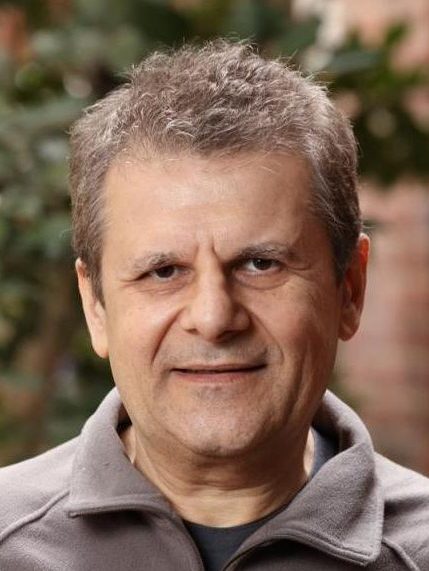
Professor, University of Virginia
Biography
Research Interests: VLSI, Low Power, Processing-in-Memory, Nanoelectronics
Mircea R. Stan received the Ph.D. (1996) and the M.S. (1994) degrees in Electrical and Computer Engineering from the University of Massachusetts at Amherst and the Diploma (1984) in Electronics and Communications from the Polytechnic Institute in Bucharest, Romania. Since 1996 he has been with the Charles L. Brown Department of ECE at the University of Virginia, where he is now a professor. Prof. Stan is teaching and doing research in the areas of high-performance low-power VLSI, temperature-aware circuits and architecture, embedded systems, spintronics, and nanoelectronics. He leads the High-Performance Low-Power (HPLP) lab and is an associate director of the Center for Automata Processing (CAP). He has more than eight years of industrial experience, has been a visiting faculty at UC Berkeley in 2004-2005, at IBM in 2000, and at Intel in 2002 and 1999. He has received the NSF CAREER award in 1997 and was a co-author on best paper awards at SELSE 2017, ISQED 2008, GLSVLSI 2006, ISCA 2003 and SHAMAN 2002. He gave conference keynotes at SOCC 2016, CNNA 2014, WoNDP 2015 and iNIS 2015. He was the chair of the VSA-TC of IEEE CAS in 2005-2007, general chair for ISLPED 2006 and for GLSVLSI 2004, technical program chair for ISVLSI 2017, NanoNets 2007 and ISLPED 2005, and on technical committees for numerous conferences. He is a Senior Editor for the IEEE Transactions on Nanotechnology and an AE for IEEE Design & Test since 2014, and was an AE for the IEEE TNano in 2012-2014, IEEE TCAS I in 2004-2008 and for the IEEE TVLSI in 2001-2003. He was Guest Editor for the IEEE Computer special issue on Power-Aware Computing in December 2003 and a Distinguished Lecturer for the IEEE Circuits and Systems (CAS) Society in 2012-2013 and 2004-2005, and for the Solid-State Circuits Society (SSCS) in 2007-2008. Prof. Stan is a fellow of the IEEE, a member of ACM, and of Eta Kappa Nu, Phi Kappa Phi and Sigma Xi. His h-index is 47 and his i10-index is 116.
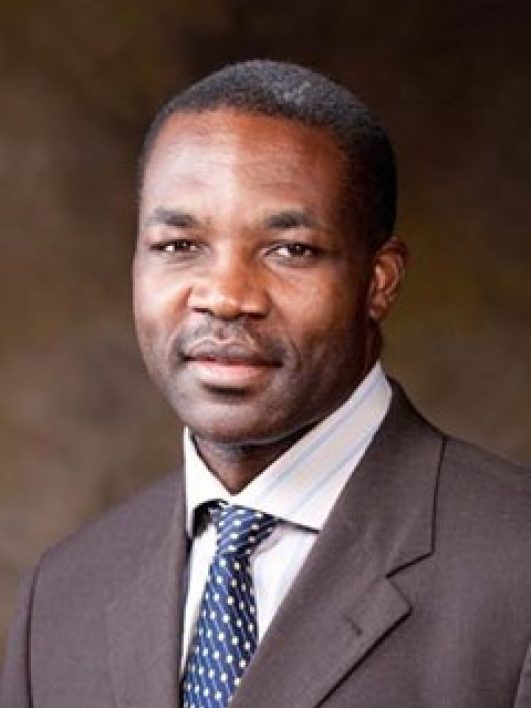
Professor, University of Florida
Biography
Research Interests: Embedded Vision, Embedded Systems, Reconfigurable Computing, Computer Architecture, Cybersecurity, System-Level Design
Professor Bobda received the Licence in mathematics from the University of Yaounde, Cameroon, in 1992, the diploma of computer science and the Ph.D. degree (with honors) in computer science from the University of Paderborn in Germany in 1999 and 2003 (In the chair of Prof. Franz J. Rammig) respectively. In June 2003 he joined the department of computer science at the University of Erlangen-Nuremberg in Germany as Post doc, under the direction of Prof Jürgen Teich. Dr. Bobda received the best dissertation award 2003 from the University of Paderborn for his work on synthesis of reconfigurable systems using temporal partitioning and temporal placement. In 2005 Dr. Bobda was appointed assistant professor at the University of Kaiserslautern. There he set the chair for Self-Organizing Embedded Systems that he led until October 2007. From 2007 to 2010 Dr. Bobda was Professor at the University of Potsdam and leader of The working Group Computer Engineering.
Profesor Bobda is Senior Member of the ACM. He is also in the program committee of several conferences (FPL, FPT, RAW, RSP, ERSA, RECOSOC, DRS), the DATE executive committee as proceedings chair (2004, 2005, 2006, 2007, 2008, 2009, 2010). He served as reviewer of several journals (IEEE TC, IEEE TVLSI, Elsevier Journal of Microprocessor and Microsystems, Integration the VLSI Journal) and conferences (DAC, DATE, FPL, FPT, SBCCI, RAW, RSP, ERSA), as guest editor of the Elsevier Journal of Microprocessor and Microsystems and member of the editorial board of the Hindawi International Journal of Reconfigurable Computing. Dr. Bobda is the author of one of the first most comprehensive books in the rapidly growing field of Reconfigurable Computing.

Research Scientist, University of Virginia
Biography
Research Interests: Neuromorphic computing, signal processing, imaging in edge devices, theory and quantum modeling of infrared detectors, machine intelligence, autonomous sensory-motor devices
Dr. Samiran Ganguly is a Research Scientist at University of Virginia. He received his Ph.D. from Purdue University under the guidance of Prof. Supriyo Datta in 2016. He co-founded and co-developed the Modular Approach to Spintronics, the largest open source collection of circuit modules for modeling complex structures and devices using emerging materials technology and phenomena. His recent research has focused on exploration of neuromorphic computing using this approach for applications in temporal domain, specifically on signal processing and imaging in edge devices. He is also working on developing theory and quantum modeling of emerging infrared detectors and their close integration with neuromorphic backends for building smart cameras with spatio-temporal machine intelligence and autonomous sensory-motor devices. He has over 50 articles in peer-reviewed journals and international conference proceedings, and 10 invited talks.
MIST ULTIMATE Symposium Sessions
Sept. 22, 2021
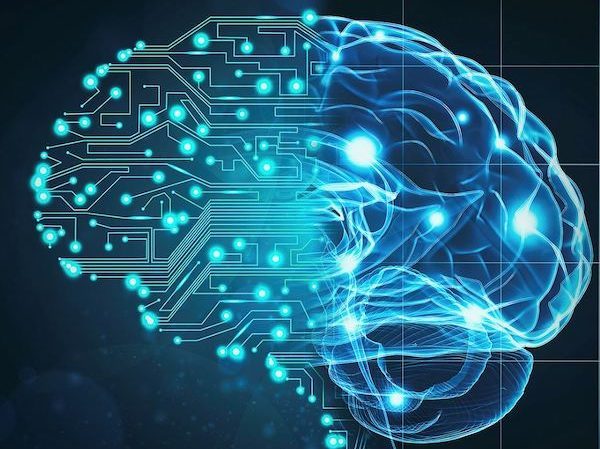
Neuromorphic Computing at the Edge
The MIST Center ULTIMATE Symposium brings together academic, government, and industrial thought leaders on emerging hardware technologies that will pave the way for future electronics, networked systems, and distributed sensing platforms.
Aug. 19-20, 2021
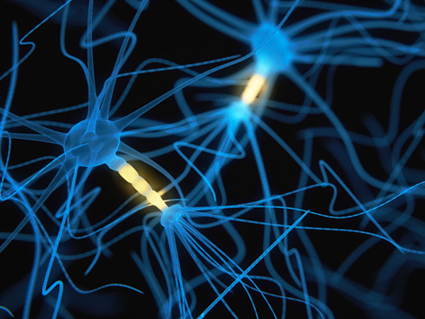
Bioelectronics for Pain and Addiction
Bioelectronics technologies can play a vital role in both in vitro and in vivo solutions that better recapitulate human pathophysiology of chronic and development of nonadditive therapeutics for treatment of pain.
This symposium will feature talks from experts in academic and industry that are at the forefront of this highly interdisciplinary area.
July 14, 2021

Quantum Computing/Sensing
This ULTIMATE symposium aims to explore the convergence of quantum science and engineering, to stimulate new ideas and advances in quantum engineering, and to engage and encourage young talents to venture to this frontier.
Registration
If your organization’s firewall blocks Google Forms, please email the MIST Center Coordinator directly.

The MIST Center is an NSF I/UCRC program. Any opinions or findings expressed in this material are those of the author(s) and do not necessarily reflect the views of the NSF.